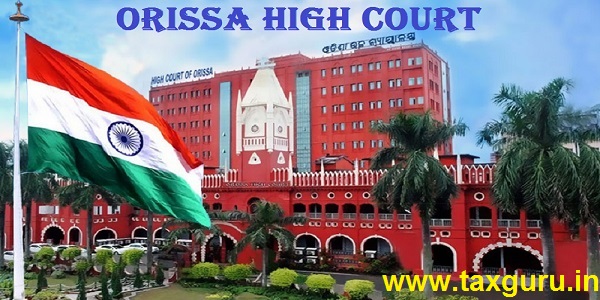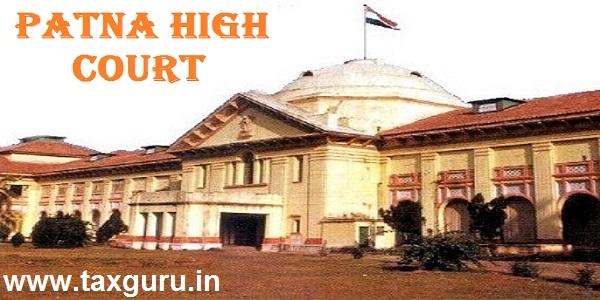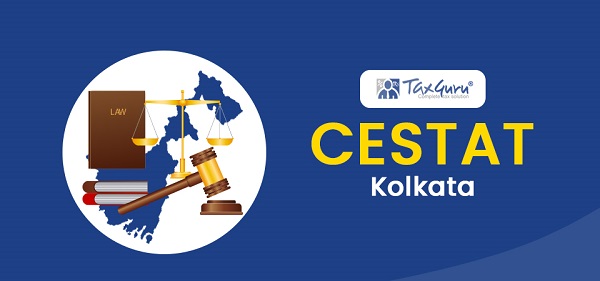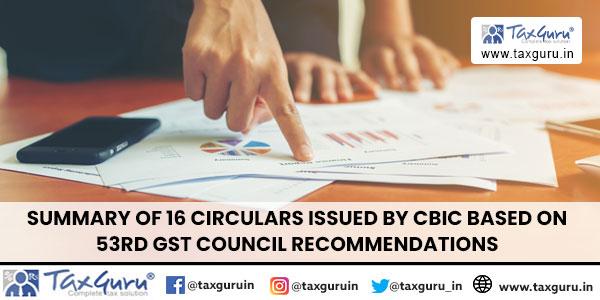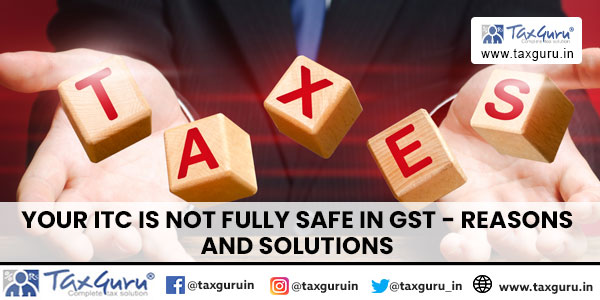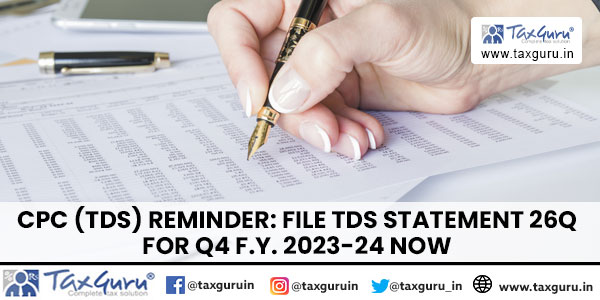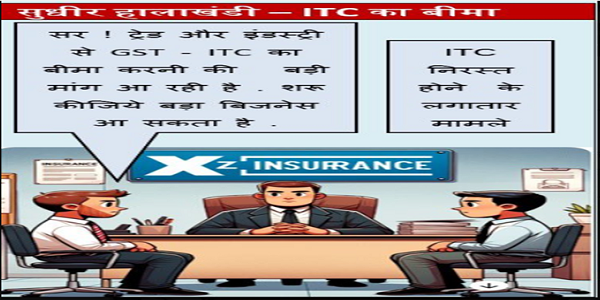Case Law Details
Indermal Manaji Vs CIT (Bombay High Court)
The basis for initiation of assessment proceedings by the assessing officer is that the assessing officer disbelieved the claim of the assessee that he was engaged in the business of discounting drafts, whereas the Tribunal held that the assessee carries on the business of draft discounting. The assessee has stated that the amount in the account is the amount of the drafts received of which the assessee charges Re. 1 per thousand as commission. Explanation 1 to section 271(1)(c) of the Act states that if a person fails to offer an explanation or offers an explanation which is found by the assessing officer to be false or such person offers an explanation which he is not able to substantiate and fails to prove that such explanation is bona fide and that all the facts relating to the same and material to the computation of his total income have been disclosed by him, then, the amount added or disallowed in computing the total income of such person, as a result thereof shall for the purpose of clause (c) of the said sub-section be deemed to represent the income in respect of which particulars have been concealed. In the present case, no addition of the amount has been made, nor is a case of disallowance. Even the Tribunal had accepted the case of the assessee that he is carrying on the business of draft discounting. It is also observed that in many cases, the Tribunal has taken a view that in case of draft discounting, income is considered at Re. 1 per thousand and in some cases, at Rs. 2 per thousand. In the present case, it considered to Rs. 2 per thousand. The assessee, therefore, was not required to give any explanation as his case was accepted by the Tribunal in appeal. As such, for all the above reasons, Explanation 1 to section 271(1)(c) of the Act would not be attracted.
Considering the aforesaid conspectus of the matter, it is abundantly clear that the very basis of the penalty proceedings was set aside by the Tribunal in an appeal against the assessment order. There was no addition of income. On the contrary, the case of the assessee, which was negated by the assessing officer of carrying on the business of draft discounting, is accepted by the Tribunal. Explanation 1 to section 271(1)(c) of the Act, in the facts and circumstances of the present case, would not arise.
Full Text of the High Court Judgment / Order is as follows:-
The reference is made on the following question :–
“(1) Whether on the facts and circumstances of the case and in law the Tribunal was right in holding that the Explanation to section 271(1)(c) was correctly invoked by the Commissioner (Appeals) ?”
2. The factual matrix, in nutshell, is as under :–
(a) The assessee claims to earn? on the business in draft discounting and earns commission of Re. 1 per thousand.
(b) The assessing officer in his assessment order for the year 1982-83 to 1985-86 held that the assessee has failed to prove that he carries on the business of draft discounting and earns commission and as such, held the income to be 5 per cent, of the deposits. The said order was purportedly passed in the year 1987. Pursuant thereto, the assessing officer initiated penalty proceedings under section 271(1)(c) of the Income Tax Act for all these assessment years and on 21-9-1989, decided the penalty proceeding against the assessee holding the assessee liable to pay penalty. The said order is passed on 21-9-1989. The assessee preferred an appeal before the Commissioner (Appeals). The said appeal came to be dismissed under judgment and order dated 26-2-1990. Aggrieved thereby, the assessee filed an appeal before the Tribunal. The Tribunal confirmed the order imposing penalty upon the assessee.
3. The learned counsel for the assessee strenuously contended that the order of the assessing officer in the assessment proceedings holding that the assessee is not carrying on the business of draft discounting has been negatived by the Tribunal under its order dated 13-7-1993. The Tribunal held that the assessee carries on business of draft discounting and earns commission, however, observed that it would be appropriate to consider the commission at Rs. 2 per thousand instead of Re. 1 per thousand. The order of the assessing officer imposing penalty was passed before the quantum appeal was decided by the Tribunal. The learned counsel submits that the very basis upon which the assessing officer has imposed penalty is set aside by the Tribunal in the quantum appeal and as such, the order imposing penalty cannot be sustained.
4. The learned counsel relies on the judgment of the Delhi High Court in the case of CIT v. Fortune Technocomps (P) Ltd., dt. 13-5-2016 and so also, the judgment of the Allahabad High Court in the case of CIT v. Norton Electronics Systems (P) Ltd. in (IT Appeal No. 9 of 2007, dt. 2-12-2013). The learned counsel further submits that there was no concealment of income and no addition was made under section 68 of the Income Tax Act. Moreover, the Tribunal has concluded that the assessee is carrying on the business of draft discounting and earns commission. The premise on which the penalty proceedings are initiated itself stands set aside. As such, the penalty proceedings are bad in law. According to the learned counsel, the Tribunal erred in confirming the orders of the assessing officer and the Commissioner.
5. The learned counsel for the Revenue submits that the appellant failed to comply with the requirement under section 142(1)/143(2) of the Act. The assessee failed to furnish the nature of business and names and complete address of the persons whose cheques/drafts were discounted, profit and loss account and balance-sheet etc. The assessee was not able to identify the person from whom the cheque/drafts were received. The appellant’s case is governed by new Explanation 1. The assessee has failed to offer any explanation. According to the learned counsel, the Tribunal while allowing the quantum appeal, had adopted a rule of thumb and determined the income at Rs. 2 per thousand, however the assessee could not substantiate the explanation offered. This has been held by the Tribunal.
6. The learned counsel relies on the judgment of the apex court in a case of Chuharmal v. CIT (1988) 172 ITR 250 (SC) and another judgment of the Delhi High Court in the case of CIT v. Kalindi Rail Nirman Engineering Ltd. (2014) 365 ITR 304 (Delhi).
7. We have considered the submissions canvassed by the learned counsel for the parties, so also, have gone through the orders passed. The question to be considered is whether Explanation to section 271(1)(c) of the Act could be invoked.
8. The relevant dates are as under :–
The assessment order for the years 1982-83 to 1985-86 passed by the assessing officer is dated 30-12-1987. The same has been confirmed by the Commissioner (Appeals) in the years 1986 and 1989. The Tribunal allowed the appeal filed by the assessee against the orders of the assessing officer and the Commissioner in the assessment proceedings on 13-7-1993. The assessing officer initiated the penalty proceedings and passed order holding the assessee liable to pay penalty under section 271(1)(c) on 21-9-1989. The Commissioner (Appeals) confirmed the said order levying penalty on 26-2-1990.
9. On perusal of the dates, it is manifest that the penalty proceedings were initiated by the assessing officer before the Tribunal had decided the quantum appeal. The basis of initiation of penalty proceeding and holding the assessee liable to pay penalty was that the assessee claims that he was engaged in the business of discounting draft was rejected and as such, the assessee has concealed the particulars of income.
10. However, the Tribunal in the quantum appeal has held that the assessee is carrying on the business of discounting drafts and the income of the assessee should be calculated at the rate of Rs. 2 per thousand instead of Re. 1 per thousand as claimed by the assessee and the appeal of the assessee was partly allowed.
11. It would be seen that the basis upon which the penalty proceedings were initiated was set aside by the Tribunal. It is observed in the penalty proceedings by all the authorities that the assessee could not give the details and explanation of the parties who are not identified the parties and as such, Explanation 1 to section 271(1)(c) would be invoked.
12. Section 271(1)(c) of the Act with its Explanation reads as under :–
“271. (1) If the assessing officer or the Commissioner (Appeals) or the Principal Commissioner or Commissioner in the course of any proceedings under this Act, is satisfied that any person —
(a) Omitted
(b) has failed to comply with the notice under sub-section (2) of section 115WD or under sub-section (2) of section 115WE or under sub-section (1) of section 142 or sub-section (2) of section 143 or fails to comply with a direction issued under sub-section (2A) of section 142, or
(c) has concealed the particulars of his income or furnished inaccurate particulars of such income, or
(d) has concealed the particulars of the fringe benefits or furnished inaccurate particulars of such fringe benefits, he may direct that such person shall pay by way of penalty,–
(i) Omitted
(ii) in tile cases referred to in clause (b), in addition to tax, if any, payable by him, a sum of ten thousand rupees for each such failure;
(iii) in the cases referred to in clause (c) or clause (d), in addition to tax, if any, payable by him, a sum which shall not be less than, but which shall not exceed three times, the amount of tax sought to be evaded by reason of the concealment of particulars of his income or fringe benefits or the furnishing of inaccurate particulars of such income or fringe benefits.
Explanation 1.–Where in respect of any facts material to the computation of the total income of any person under this Act,–
(A) such person fails to offer an explanation or offers an explanation which is found by the assessing officer or the Commissioner (Appeals) or the Principal Commissioner or Commissioner to be false, or
(B) such person offers an explanation which he is not able to substantiate and fails to prove that such explanation is bona fide and that all the facts relating to the same and material to the computation of his total income have been disclosed by him, then, the amount added or disallowed in computing the total income of such person as a result thereof shall, for the purposes of clause (c) of this sub-section, be deemed to represent the income in respect of which particulars have been concealed.
In the present case, the amount has not been added to the income of the assessee. In the assessment proceedings, the Tribunal had observed that in many cases the Tribunal has accepted Re. 1 per thousand as commission and in some cases at Rs. 2 per thousand. In present case, it is considering Rs. 2 per thousand.
13. The contention of the assessee in the assessment proceedings is that the assessee carried on the business in draft discounting. The deposits represented the drafts received from different parties and the commission of the assessee was Re. 1 per thousand.
14. In the assessment proceedings, the assessing officer did not accept the contention of the assessee and held that the assessee’s claim that he was engaged in business of discounting drafts was rejected and the assessee’s income was estimated at the rate of 5 per cent, of the total deposits made in the bank. The said finding of the assessing officer in the assessment proceedings is confirmed by the Commissioner (Appeals). The assessee had preferred an appeal to the Tribunal against the order of the Commissioner (Appeals). During the interregnum and before the Tribunal decided the appeal in the assessment proceedings, the assessing officer initiated penalty proceedings on the basis of his assessment order and on the ground that the assessee’s claim that he was engaged in business of discounting drafts was rejected, imposed penalty upon the assessee invoking section 271(1)(c) of the Act. The Commissioner (Appeals) also dismissed the appeal filed by the assessee against the order imposing penalty on or about 26-2-1990.
15. On or about 13-7-1993, the Tribunal partly allowed the appeal of the assessee preferred against the order of the assessing officer. The Tribunal upheld the contention of the assessee that he carries on the business of draft discounting and earns commission. A clear finding to that effect is rendered by the Tribunal. The Tribunal observed that it finds no reason to disbelieve the assessee that he is engaged in the business of draft discounting. The Tribunal further observed that the assessee makes the payment to the parties before release of draft proceeds. The Tribunal further observed that the Tribunal has considered Re. 1 per thousand as commission in several similar cases, but it finds that there are also cases where the Tribunal adopted the higher rate depending on the circumstances of the case and the Tribunal presumed that for providing the facility, the assessee must have charged some extra amount and that the rate at Rs. 2 per thousand for discounting of drafts and cheques, is to be adopted. The order of the assessing officer, as such, was set aside.
16. It is abundantly clear that the very basis for initiation of the penalty proceedings stood negated by the order of the Tribunal in an appeal filed by the assessee against the order of the assessing officer in the assessment proceedings.
17. The basis for initiation of assessment proceedings by the assessing officer is that the assessing officer disbelieved the claim of the assessee that he was engaged in the business of discounting drafts, whereas the Tribunal held that the assessee carries on the business of draft discounting. The assessee has stated that the amount in the account is the amount of the drafts received of which the assessee charges Re. 1 per thousand as commission. Explanation 1 to section 271(1)(c) of the Act states that if a person fails to offer an explanation or offers an explanation which is found by the assessing officer to be false or such person offers an explanation which he is not able to substantiate and fails to prove that such explanation is bona fide and that all the facts relating to the same and material to the computation of his total income have been disclosed by him, then, the amount added or disallowed in computing the total income of such person, as a result thereof shall for the purpose of clause (c) of the said sub-section be deemed to represent the income in respect of which particulars have been concealed. In the present case, no addition of the amount has been made, nor is a case of disallowance. Even the Tribunal had accepted the case of the assessee that he is carrying on the business of draft discounting. It is also observed that in many cases, the Tribunal has taken a view that in case of draft discounting, income is considered at Re. 1 per thousand and in some cases, at Rs. 2 per thousand. In the present case, it considered to Rs. 2 per thousand. The assessee, therefore, was not required to give any explanation as his case was accepted by the Tribunal in appeal. As such, for all the above reasons, Explanation 1 to section 271(1)(c) of the Act would not be attracted.
18. The learned counsel for the Revenue has placed reliance on the judgment of the apex court in the case of Chuharmal (referred to supra). In the said case, the wrist watches were seized from the assessee’s bedroom. No explanation was given at the time of seizure. The assessee also did not avail of the opportunity to show that he was not the owner. The deemed income comprising of value of unexplained articles was added to the disclosed income. In that context, the apex court has held that Explanation to section 271(1)(c) of the Act is attracted and penalty would be leviable. In the present case, the Tribunal had accepted the case of the assessee that he has carried on the business of draft discounting and earns money thereby negating the order of the assessing officer in the assessment proceedings. Further, no amount was added as income. In case of Kalindi Rail Nirman Engineering Ltd. (referred to supra) before the Delhi High Court also the facts were absolutely different. In the said case, the income was concealed by the assessee and the discrepancies were found in the account by the special auditor. The court held the imposition of penalty justified. As discussed supra, the case of the assessee of carrying on business of discounting bank drafts and earning commission, has been accepted.
19. Considering the aforesaid conspectus of the matter, it is abundantly clear that the very basis of the penalty proceedings was set aside by the Tribunal in an appeal against the assessment order. There was no addition of income. On the contrary, the case of the assessee, which was negated by the assessing officer of carrying on the business of draft discounting, is accepted by the Tribunal. Explanation 1 to section 271(1)(c) of the Act, in the facts and circumstances of the present case, would not arise.
20. In light of the above, the question referred to is answered in favour of the assessee holding that the Tribunal was not right in invoking Explanation 1 to section 271(1)(c) of the Act.
21. Reference, accordingly, disposed of.
22. No costs.






